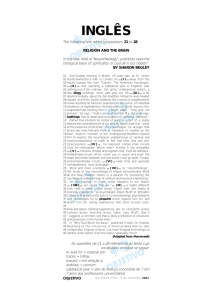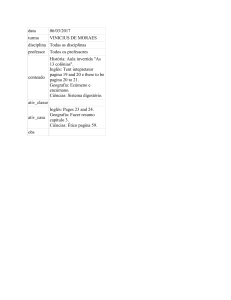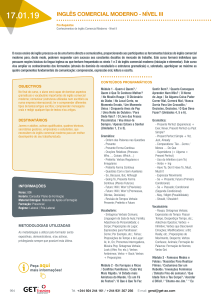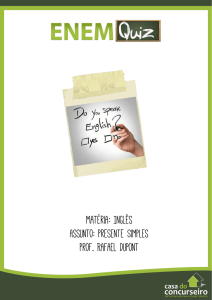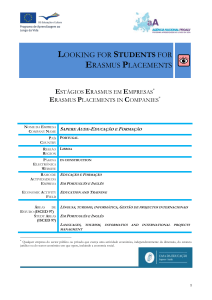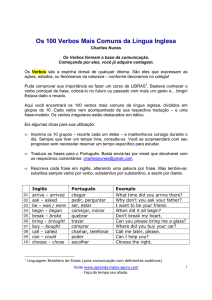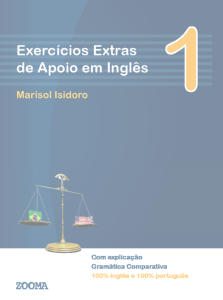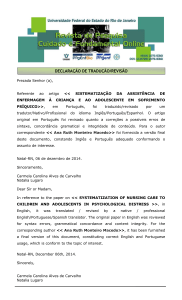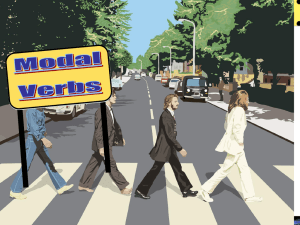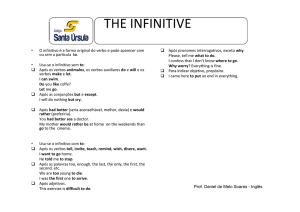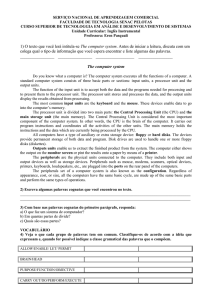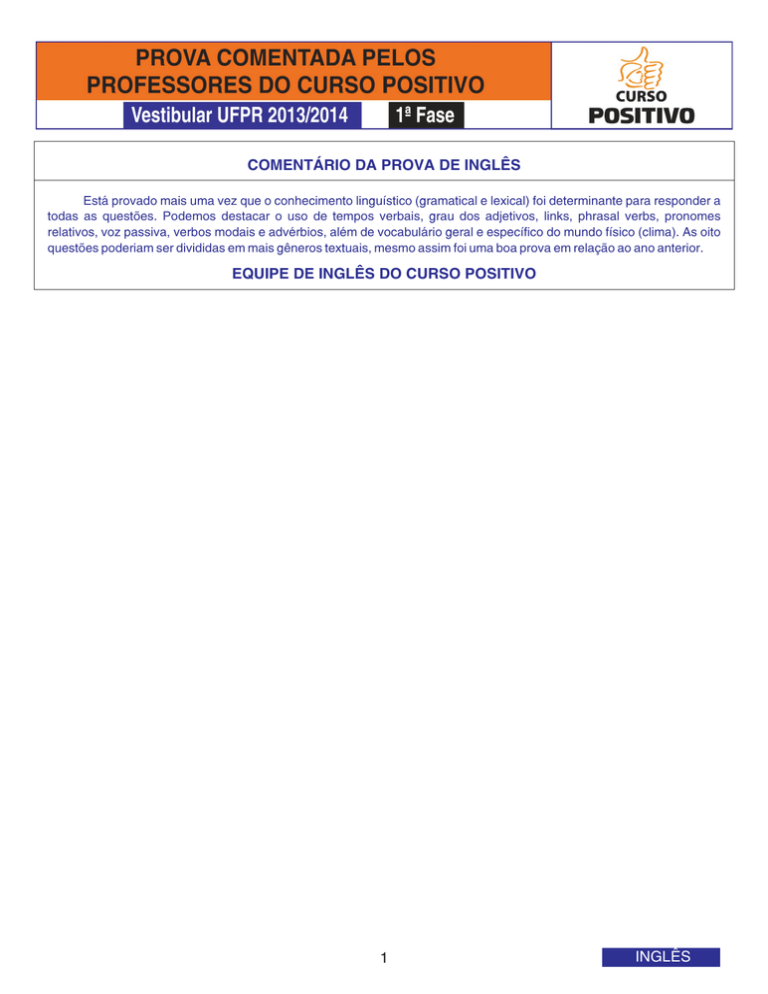
COMENTÁRIO DA PROVA DE INGLÊS
Está provado mais uma vez que o conhecimento linguístico (gramatical e lexical) foi determinante para responder a
todas as questões. Podemos destacar o uso de tempos verbais, grau dos adjetivos, links, phrasal verbs, pronomes
relativos, voz passiva, verbos modais e advérbios, além de vocabulário geral e específico do mundo físico (clima). As oito
questões poderiam ser divididas em mais gêneros textuais, mesmo assim foi uma boa prova em relação ao ano anterior.
EQUIPE DE INGLÊS DO CURSO POSITIVO
1
INGLÊS
Resolução:
Última sentença do 1º parágrafo – “My reading was confined to stories by English – speaking authors.
2
INGLÊS
Resolução:
As afirmações verdadeiras são:
1 – “She decided to read nearly 200 books in a year, which included the UN recognized countries. (2º parágrafo: So ... [...] from
nearly 200 books.
2 – “She felt that she was missing something by not having read foreign publications. (2º parágrafo: “I set myself [...] in a year to
find out what I was missing.
3 – “She created a blog to ask for suggestions of books she could read in English” (2º parágrafo “I created a blog called A Year of
reading the world [...] I could read in English”.
Resolução:
1 – “The blog was very successful in getting responses from people all over the world (3º parágrafo: “The response was amazing.
People all over the planet were getting in touch with ideas and offers to help”.
2º Some people posted books from their countries to Ann while others did hours of research. (3º parágrafo “Some posted me
books from their home countries. Others did hours of research on my behalf”. (do meu interesse)
3
INGLÊS
Resolução:
A única alternativa que não corresponde às informações dadas no texto sobre as experiências de Ann Morgan está na
sentença: “She spent a year backpacking in several foreign couyntries and met some foreign writers.” O texto não informa que
ela passou um ano em vários países estrangeiros e que conheceu alguns escritores desses lugares.
Resolução:
“Ann’s experience began as an intellectual exercise but she got emotionally involved”. Último parágrafo “One by one [...] fear.
4
INGLÊS
Resolução:
As alternativas corretas são:
1. “Scientists think it 95% likely that human activity is causing global warming”. 2º parágrafo “The IPCC also said there was a
95 per cent likelihood (probabilidade) that global warming is caused by human activities.
o
2. “Temperatures could be 5 C warmer by the end of the current (atual) century.” 1º parágrafo “Climate scientists have
o
concluded that temperatures could jump by up to 5 C and sea levels could rise by up to 82 cm by the end of the century [...]
3. “Scientists are surer now than in 2007 that humans are causing global warming” 3º parágrafo “we have got quite a bit more
certain (temos muito mais certeza) that climate change is largely man – made.”
5
INGLÊS
Resolução:
As alternativas verdadeiras são: 1. “The IPCC made a wrong prediction about the Himalayas in the 2007 report.” 3º parágrafo –
“The IPCC report [...] after errors in the 2007 study, which wrongly predicted that all Himalayan glaciers could melt by 2.035.
2. “IPCC’s new report will be carefully examined after the errors comitted in 2007.” 3º parágrafo “The IPCC report, the first of
three in 2013 e 2014, will face intense scrutiny (estudo minuncioso) particularly after errors in the 2.007 study.
Resolução:
Questão de referência. O pronome It em “It will also say evidence of rising sea level is “unequivocal” refere-se a the IPCC report.
6
INGLÊS

